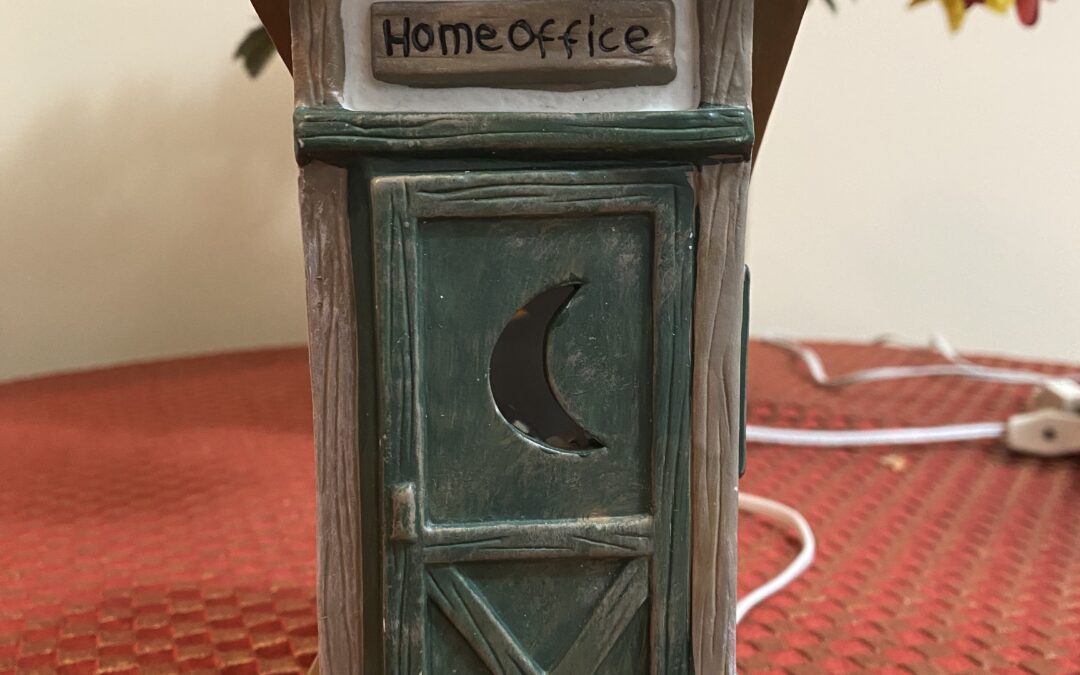If any of the comments and statistics outlined in part 1 of this series apply to your situation at work, you might be justified in seeking a change in employment. Not that you’re necessarily faultless yourself, but it is difficult working in a toxic environment. The negativity, conflict, and animosity could be stressful and eventually wear you down. You may be enjoying your job less and less, and no longer looking forward to another day at the office.
But don’t be so quick to throw in the towel. If you took the job in the first place because you like that type of work, make sure you are unable to influence the environment in which you are working. You might find that you are part of the problem. If so, you have the power to change your thinking and behavior. Or, at least when you leave, you will know that you are leaving for the right reasons. And any feedback you can get from your current boss and coworkers can only help you in your future job or jobs.
Clay Scroggins, in his book, How to Lead When You’re Not in Charge, suggests that before you leave a job, you should make a list like you might do before leaving home on an extended vacation.
We used to think through a lot of things before leaving for Florida each year to spend most of the winter there. Who would shovel the snow off the driveway (and roof)? Who would feed the birds? Do we need to have our mail forwarded? Would we need travel insurance? Does our current health insurance cover the full cost of any emergencies? What about the impact on our finances? Will there be any major events that we would miss if we left at this time of the year? And so on.
We had a two-page checklist. And sometimes the advantages of staying seemed to outweigh the advantages of leaving. And that’s just a vacation! Leaving a job is a lot more critical. You might find that there are more disadvantages than advantages to quitting at this time. Either way, the first step is to assume control of the situation. Don’t let the emotional part of the brain, the limbic system, make a knee-jerk decision for you. When you stop to consider the good, the bad, and the ugly of quitting your job, the thinking part of your brain – the CEO of your brain, located in the prefrontal cortex takes control. When control is absent, stress is at the forefront. And stress does not guarantee wise decisions.
One alternative to quitting your job is deciding to stick with your current job for a specific time. Let’s say six months or a year. Reframe your current job. Look at it as an opportunity to improve yourself – your skills, knowledge, experience – anything that would qualify you for the job or position that you would like to have instead. You are choosing to see this job as essential to your long-term goals. If you have a specific goal, such as “being prepared to take over the position of Quality Control Manager in a major corporation,” you add purpose and meaning to your current job and life. As Richard Leider, author of the book, The Power of Purpose, claims, “Purpose brings fulfillment.”
During this time, you might do everything within your power to be fully engaged in your work, participating in whatever opportunities come your way to improve your performance, assist your co-workers, make things easier for the boss, and so on. During this “trial period,” you might also register for a course or two in soft skills such as effective communication, time management, or creativity – skills that would be useful regardless of where you worked. You might also read and apply a few of the recommendations from the books on soft skill topics. I say this because that’s what makes the difference between good leaders and great leaders. Most of the 41 books I have published to date at Bookboon.com are on soft skills, including such titles as How to build character, How to be a proactive person, and How to build trust & respect in the workplace.
At the same time, you could keep your feelers out for a better opportunity elsewhere. Check the newspapers, and social media sites, and keep alert to any openings in your present company or elsewhere. Pick up the most recent edition of Richard Bolles’ book, What Color is Your Parachute? for ideas on seeking employment elsewhere. It is revised annually. Be sure to read the orange pages at the back. The late Richard Bolles has left an excellent commentary on finding your mission in life.
What you are doing is reframing your job – seeing it as a route you have chosen to practice the essential skills needed to land the job of your dreams. The important thing is that it is your choice. You are now in control. You make the decisions concerning your career and relationship with your current employer. And you do it by reframing the job you hate.
In Part 3 of this series, I will explain reframing in more detail, provide examples, and suggest ways you can reframe your current job. In the meantime, if you would like to download a copy of the full 31-page report on How to love the job you hate, it’s now available at our website for $4.95 CDN. Click here.


Recent Comments